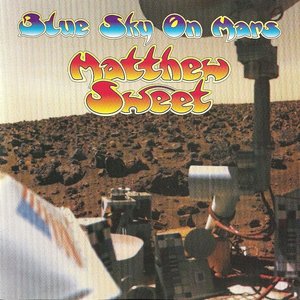Published on Nov 23, 2013
[Adapted from a review originally appearing in On The Town magazine on April 15, 1997]
Take the simple three-minute song structures of '50s rock and roll, add a dash of '60s counter-culture (not to mention layered harmonies), skip the '70s entirely (well, except for the Roger Dean logo), latch onto some big, melodious, slightly distorted '80s guitars (think early-period R.E.M.), throw in a dose of '90s self-loathing, and you've got musical Renaissance man Matthew Sweet.
The opener on Blue Sky On Mars, the angry, knowing "Come To California," makes a nice hard-rock bookend to Natalie Merchant's "San Andreas Fault," blasting the City of Angels' self-involved materialism through the well-chosen device of a dialogue with an ex who's gone over to SoCal's dark side. Darker still (at least lyrically; the music has great bounce to it) are "Back To You" and "Where You Get Love," two jangly-guitared chronicles of emotional self-abuse which lead into the just plain disturbing "Hollow" (“An evil bigger than you could know / Has taken root”). Then Sweet decides it's time for a little Yin to go with his Yang and gives us the warm, sensitive "Behind The Smile" and the beautiful love song "Until You Break." It's a gesture that tells you a lot about him.
As evidenced by the cover to his 1995 album, 100% Sweet (a photo of Sweet as an awestruck young teenager with headphones on), and this CD's goofy shots of him in a space suit, Sweet is—or at the very least wants very badly to be—basically just a big kid with a nice selection of cool sonic toys at his fingertips. With this somewhat arrested level of sophistication come elements of enthusiasm and purity of commitment that very few more self-conscious bands can manage.
At times Sweet's highly melodic approach, downbeat yet quirky touch with lyrics and airy voice remind me of Freedy Johnston, albeit with a crunch to the guitars that's much more Gin Blossoms. But despite the many complements and influences evident in Sweet's music, the musician himself emerges in the end as quite an original—which may be the true mark of a Renaissance man.
“
